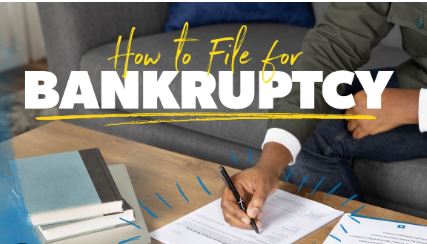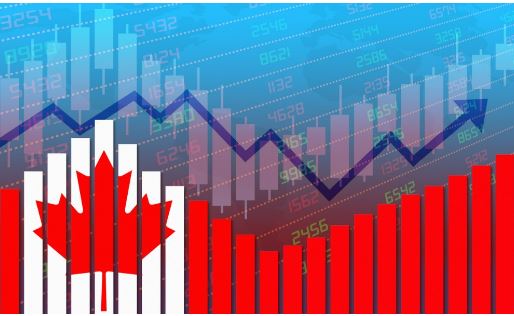Regarding financial survival, the question of how much debt is worth filing bankruptcy can be daunting. Many consumers need help with the weight of their financial obligations, unsure when or if they should consider the option of bankruptcy.
In this comprehensive guide, we’ll delve deep into understanding when bankruptcy might be the right step, how to assess the feasibility of this avenue, and the types of debt that could influence this critical decision.
How Much Debt is Worth Filing for Bankruptcy?
One of the most pivotal considerations in conquering a mountain of debt is recognizing when to raise the white flag and explore the possibility of declaring bankruptcy. No universal dollar amount dictates when to file, as the decision is heavily tethered to each person’s unique financial predicament.
- Bankruptcy is a legal tool often used when debts become insuperable, not confined to a particular dollar figure.
- Consultation with financial professionals might lead to a suggestion for bankruptcy when your debt effectively shackles you, exceeding 50% of your annual income and seemingly impossible to clear within a half-decade span.
- A critical assessment of repaying capabilities while upholding a minimum standard of living is imperative. Should this balancing act prove unfeasible, bankruptcy is a potential lifeline.
- Additional factors swaying this choice encompass protecting one’s assets, scrutinizing the nature of debts owed (secured versus unsecured), and contemplating potential impacts on your credit score.
- Engaging with a bankruptcy lawyer or a financial counsellor can offer tailor-made advice, as they expertly evaluate your circumstances against your economic aspirations for the future.
What Level Of Debt Typically Justifies Considering Bankruptcy As An Option?
The threshold for entertaining bankruptcy is not set in stone but is triggered by the overwhelming sensation of unmanageable debt in juxtaposition to one’s income and fiscal reserves.
- A specific dollar marker is absent; the stark inability to fulfil financial commitments in a realistic timeframe is the red flag.
- Experiences such as routinely faltering on monthly bills, facing the spectre of a wage garnishment, or contending with lawsuits over debt can prompt severe bankruptcy thoughts.
- The type of debt weighing on you also modifies the decision equation – secured versus unsecured – and the scope for relief through negotiation or reconfiguration might tilt the scales in favour of filing.
- Generally, when debts dwarf the worth of all your possessions and current income holds no promise of surmounting this fiscal chasm, bankruptcy emerges as a potentially sound option.
How Does One Determine If Their Amount Of Debt Is Worth Filing For Bankruptcy?
Determining if bankruptcy is your financial salve for the wounds of debt involves a multi-faceted approach.
- Taking stock of your debt-to-income ratio is crucial: oppressive ratios scream that extinguishing debt is unsustainable, pointing towards bankruptcy as a potential escape hatch.
- Pore over the types of debt: Can these be dispelled through bankruptcy? For persistent woes like student loans or certain tax dues, bankruptcy might not extend the olive branch of relief.
- Forecast the repercussions on assets: Will filing for bankruptcy purge cherished assets during liquidation? This insight might influence whether the game of bankruptcy is worth the candle.
- Scour for alternative resolutions: Consider debt amalgamation, discussions with creditors, or financial counselling before conceding to bankruptcy.
- Ponder your future fiscal objectives: Decipher how a bankruptcy record may influence your long-term ambitions, like homeownership or credit building.
Are There Specific Types of Debt That Make Filing for Bankruptcy More Advantageous?
By their very nature, some debts might render a declaration of bankruptcy more lucrative on the ledger of financial recovery.
- On the one hand, pesky sums like credit card dues, medical expenses, and personal loans can be washed away through bankruptcy, making it a compelling choice.
- Conversely, secured debts, such as those tied to property or vehicles, offer less appeal since you might have to relinquish the associated assets.
- Predominantly, student loans sit outside bankruptcy’s domain, being guarded against dismissal in most cases.
- Tax debts require a nuanced approach for discharge eligibility, underscoring the importance of expert guidance to evaluate the pros and cons of one’s specific debt profile.
What Are The Financial Ramifications Of Filing For Bankruptcy Based On Different Debt Amounts?
Diving into bankruptcy can wipe the slate clean of hefty financial liabilities, but the aftermath is not one-size-fits-all and depends considerably on the quantum of the debt.
- Smaller debts might find better resolution via out-of-court strategies due to bankruptcy’s varied implications, such as credit score deterioration and the challenges in securing future credit.
- Substantial debts, however, may warrant bankruptcy, as the relief often tips the scales against the financial aftereffects.
- Those mired in moderate debt need to evaluate the balancing act: Do the costs of bankruptcy, encompassing legal fees and other expenditures, justify the move over possible debt reconstruction or settlement?
- Bankruptcy also has a protracted echo, lingering on credit reports for up to a decade, which should be factored into the decision, even for lesser debts.
- The unique nature of each case demands a consultation with financial advisors or attorneys to grasp the specific consequences of bankruptcy for diverse debt figures.
Can An Individual With A Relatively Low Amount Of Debt Still Benefit From Filing For Bankruptcy?
Even those burdened by a less ominous level of debt might reap benefits from opting into bankruptcy under certain conditions.
- Should repayment appear as a Sisyphean task given limited means, bankruptcy might break the shackles, voiding the financial binds.
- It offers an avenue for a clean slate, curbing creditor pursuit and potentially halting wage seizures.
- Weigh the credit score impact against the emancipation from debt; while bankruptcy incurs credit damage, the chronic neglect of payment duties inflicts comparable harm.
- Scrutinize the typology of debts; for those susceptible to bankruptcy’s purge, this step could be justified, disregarding the modest debt total.
- Individual factors like earnings, possessions, and projected financial ripple effects necessitate thorough appraisal to discern if bankruptcy is a substantial boon despite a meagre debt load.
What Disqualifies You From Filing Bankruptcies
Clearing the path for bankruptcy requires adherence to legal and ethical standards; inevitable missteps can bar the way.
- Past financial transgressions, like asset camouflage or dishonest declarations, can slam the door on your bankruptcy aspirations.
- A recent bankruptcy discharge timeline — 4-8 years pending on the chapter — could hinder a new filing attempt.
- Skipping the obligatory credit guidance rendezvous pre-filing could lead to disqualification.
- The requisite financial documentation or tax records is necessary to ensure the qualification process is completed on time.
- Schemes to game the bankruptcy system, such as taking on debts with no intention to honour them, will sideline a potential filer.
While how much debt is worth filing for bankruptcy lacks a definitive financial threshold, it’s wrapped in a tapestry of personal circumstances, the nature of your indebtedness, and the consequences.
As you navigate this complex financial terrain, consider enlisting the expertise of a bankruptcy attorney or a financial advisor — a compass to guide you to the most prudent course of action tailored to your unique situation.
Remember, bankruptcy is not just a way out of debt; it’s a strategy towards a more solvent and secure financial future.
How Much Does It Cost To File Chapter 7
Understanding the costs associated with filing for Chapter 7 bankruptcy is just as important as recognizing when it’s the appropriate financial step to take. Typically, filers can expect to encounter several types of expenses, including court filing, credit counselling, attorney, and miscellaneous administrative fees.
As of my knowledge cutoff in early 2023, the court filing fee for Chapter 7 bankruptcy is $338, although fee waivers are available for those who meet specific income requirements. Credit counselling and debtor education courses, which are mandatory, usually range from $20 to $100, depending on the provider.
The most substantial cost comes from attorney fees, which vary widely based on geographic location and the case’s complexity, often ranging between $1,200 to $2,500.
It’s essential to weigh these costs against the debt you’re struggling with and your ability to repay it outside of bankruptcy to determine if filing Chapter 7 is the right choice for you.
Carefully evaluate your financial situation, possibly with the help of a bankruptcy attorney, to understand if the debt you’re facing justifies the costs and consequences of filing. Remember, bankruptcy can offer a fresh start, but it also has long-term impacts on your credit score and financial standing.
How Much Do You Have To Be In Debt To File Chapter 13
It’s important to understand that while there are debt limits for filing under this chapter, determining whether bankruptcy is worth it depends on your financial situation.
To qualify for Chapter 13 bankruptcy, as of early 2023, unsecured debts must be less than $465,275 and secured debts less than $1,395,875. These amounts are adjusted periodically to reflect changes in the consumer price index.
However, even though you meet these criteria, there are better options than bankruptcy. It’s crucial to weigh the ramifications of Chapter 13, such as the impact on your credit score and the commitment to a repayment plan that can last 3-5 years.
For those overwhelmed by debt but still with income, Chapter 13 can provide a manageable way to restructure debts and protect assets. Still, it’s wise to consult with a bankruptcy attorney to explore all available debt relief options and make an informed decision about bankruptcy.
By assessing your debts, assets, income, and financial goals, you can determine if filing for Chapter 13 is a sound financial move or if alternative debt management strategies could benefit your long-term financial health.
How Much Do You Have To Be In Debt To File Chapter 11
When considering the filing of Chapter 11 bankruptcy, it’s imperative to understand that, unlike other bankruptcy chapters, there is no minimum debt requirement. This means that individuals and businesses can file for Chapter 11 regardless of the debt they carry.
However, because Chapter 11 is particularly complex and expensive due to its detailed restructuring process, it’s often more practical for those with significant debts or assets. Potential filers must evaluate if the costs associated with Chapter 11 will offer a strategic advantage for their financial rehabilitation.
In other words, while there is no statutory debt threshold to qualify for Chapter 11, the decision to file should be based on an in-depth cost-benefit analysis.
Individuals and businesses considering this route are encouraged to consult with a bankruptcy attorney to assess whether Chapter 11 is financially sound for their circumstances or if alternatives like Chapter 7 or Chapter 13 bankruptcy may be more suitable given their specific debt situation.
How Much Debt To File Chapter 7
Knowing precisely how much debt you need to file for Chapter 7 bankruptcy can be complex, as there is no minimum debt requirement set by law. However, it is vital to consider whether the amount you owe is substantial enough to justify the consequences bankruptcy brings, such as the impact on your credit score.
Generally, bankruptcy might be a viable option if you are struggling to repay debts that equate to half or more of your annual income. This is especially true if paying off the debt takes five years or more, even with drastic expenditure cutbacks.
It is essential to evaluate your unique financial situation, including the types of debts you have—since some, like student loans and alimony, are not dischargeable in bankruptcy.
In this vein, seeking advice from a bankruptcy attorney could be the most reliable way to determine if filing Chapter 7 is the right step toward financial recovery for you. Remember, bankruptcy is a legal tool designed to relieve those who cannot meet their debt obligations.
While it’s a fresh start, it’s also a significant decision that requires careful thought and consideration.
Conclusion
When contemplating filing for Chapter 7 bankruptcy, understanding the threshold at which this option becomes viable is crucial. Every debtor’s situation is unique, and what might be an overwhelming amount of debt for one person could be manageable for another.
Generally, considering bankruptcy might be a pragmatic decision if your debt load is such that you cannot realistically pay it off within the next five years.
It is also imperative to weigh the types of debt you carry, as Chapter 7 can discharge unsecured debts like credit cards and medical bills but is less effective for secured debts such as mortgages or car loans.
Before making any decisions, consult a bankruptcy attorney to assess your financial situation and discuss the potential impact on your credit score, asset retention, and future borrowing capability.
Understanding the nuances of how much debt to file for Chapter 7 bankruptcy can be the first step towards financial recovery and the peace of mind that comes with it.






